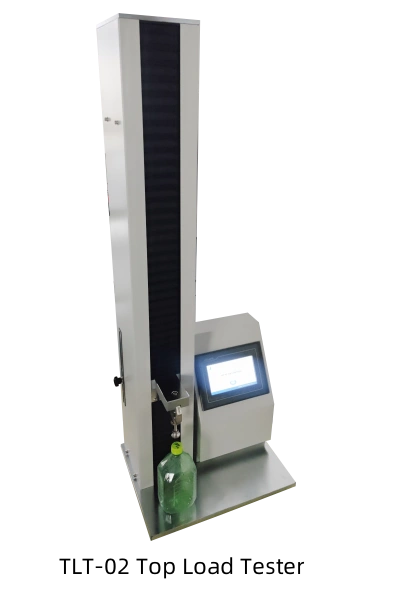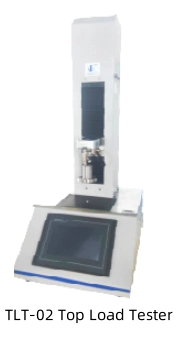corrugated box compression strength
Top Load Tester
Compression Resistance of a Container Under Constant Load
About Us
Digital Top Load Tester
Load testing ensures packaging containers—bottles, jars, drums, trays, cartons, and boxes—can withstand stacking, shipping, and storage without deformation. It protects products, meets industry standards, reduces returns and losses, and helps optimize packaging design and material use, balancing strength, efficiency, and brand reliability
Difference
- Testing Range:
- TLT-01: 0 – 1000 N (customizable)
- TLT-02: 0 – 500 N (customizable)
- Sample Height:
- TLT-01: 700 mm
- TLT-02: 200 mm
Top Load Testing Standards
ASTM D 2659, ASTM D 4577, ASTM D642, ISO 8113, ASTM D 4169
Top Load Testing Industries
| Industry / Sector | Applications |
|---|---|
| Beverage and Bottled Drinks | PET and glass bottles, cans |
| Pharmaceuticals and Chemicals | Packaging safety and stability |
| Food and Consumer Goods | Corrugated boxes, cartons, fragile packaging |
| Logistics and Warehousing | Ensuring stacking strength during storage and shipping |
Top Load Testing Technical Features
This unit is under PLC control (with industrial – level stability) and operated through an HMI touch screen. The use of a precision ball lead screw mechanism ensures consistent and accurate speed and displacement control. It features a 7 – inch HMI touch screen for user – friendly operation.
- PLC control for efficient functioning.
- Precision ball lead screw for reliable results.
- Adjustable test speed.
- Adjustable double compression plates of shape and diameter.
- Automatic detection and automatic returning function.
- Optional inclusion of a micrometer.
- RS 232 port for data communication and professional software (optional).
- Optional inclusion of a microprinter.
Top Load Principle
- Place the Container
Position the bottle, jar, drum, tray, carton, or box on the testing platform. - Align Properly
Ensure the container is centered and stable for accurate testing. - Apply Compressive Force
The tester gradually applies a vertical load to the top of the container. - Monitor Deformation or Collapse
Observe the container until it deforms or collapses under the applied force. - Record Data
Measure and record the maximum force the container withstands or the deformation at a constant load. - Analyze Results
Assess the container’s strength and performance against predefined industry standards.
corrugated box compression testing machine
Importance of Top Load Testing
Top load testing plays a critical role in ensuring the performance, safety, and efficiency of packaging solutions. By measuring the maximum compressive strength that bottles, jars, boxes, and other containers can withstand, manufacturers can ensure product reliability throughout storage, handling, and shipping.
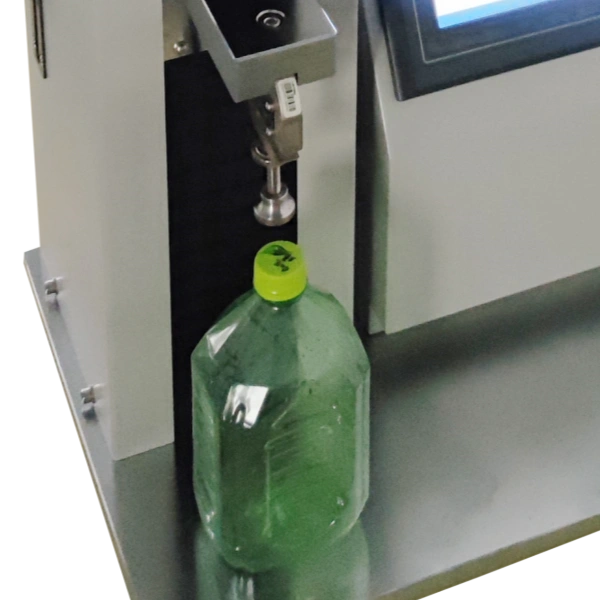
1. Product Safety & Integrity
Top load testing guarantees that packaging can endure the pressures of stacking, shipping, and storage without cracking, leaking, or collapsing. This is particularly crucial for fragile containers like glass bottles or thin-walled PET bottles. Ensuring structural integrity protects the contents from damage, preserves product quality, and prevents contamination or spoilage, which is vital for food, beverage, and pharmaceutical products.
2. Optimized Packaging Design
By analyzing the results of top load tests, manufacturers can optimize the design and materials of packaging. Testing data helps determine the minimal amount of material required while maintaining sufficient strength, reducing overuse of plastics, cardboard, or other resources. This leads to cost-effective, environmentally friendly packaging solutions without compromising safety or performance.
3. Compliance with Industry Standards
Top load testing ensures packaging meets international standards such as ASTM D4169, ASTM D642, and ISO 8113. Compliance is essential for regulatory approval, export requirements, and customer confidence. Standardized testing provides verifiable proof that containers can withstand expected handling and transport conditions, reducing liability risks and enhancing brand credibility.
Compression Resistance of a Container Under Constant Load
About Our Company
01
1. Professional Expertise
With years of experience in materials testing and packaging quality control, our team combines technical knowledge with industry insights to provide reliable, accurate, and standardized testing solutions.
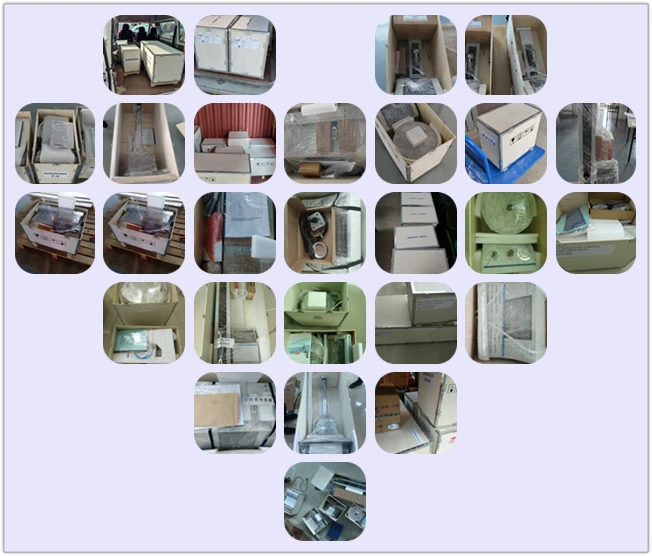
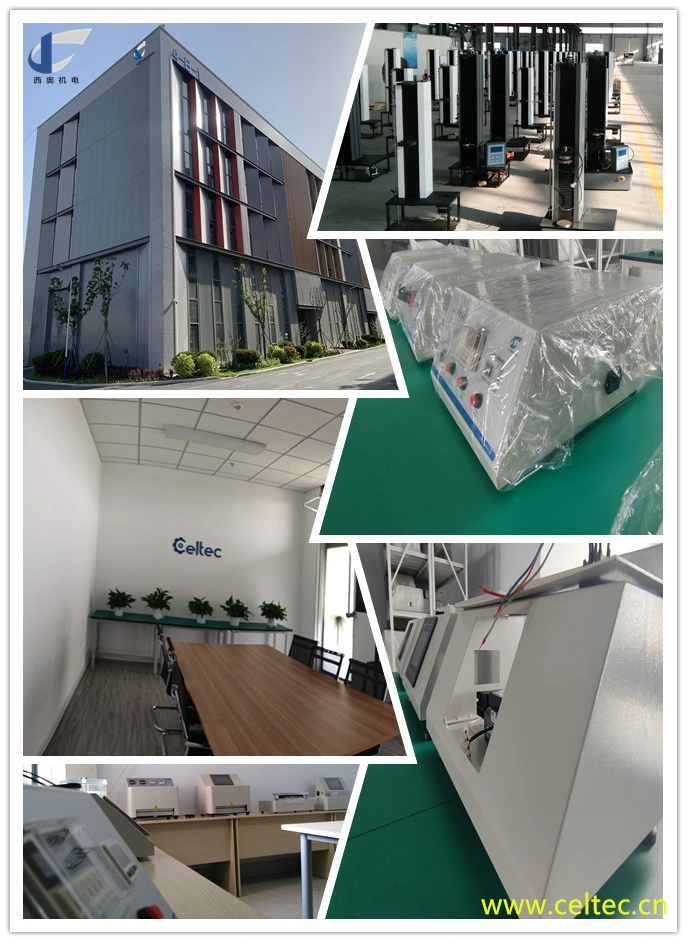
02
2. Customizable Solutions
We offer tailored testing equipment to meet specific customer requirements, including specialized load ranges, test speeds, and fixture designs, ensuring our machines are optimized for unique product types and packaging formats.

03
3. Advanced Technology & Support
Our products feature advanced digital interfaces, precise sensors, and durable construction for long-term stability. Coupled with dedicated after-sales service, we ensure easy operation, fast maintenance, and continuous support for all clients.
We are a leading manufacturer of Top Load Testers, offering high-precision packaging testing solutions to industries worldwide, including beverage, food, pharmaceutical, and logistics sectors.
– Cell Instruments
Frequently Asked Questions
Q1: What types of bottles can be tested?
A1: PET bottles, plastic containers, glass bottles, and jars are all compatible.
Q2: Can the tester measure corrugated boxes?
A2: Yes, models designed for box compression testing handle cartons and corrugated packaging.
Q3: How is the testing speed controlled?
A3: The digital top load tester features adjustable speeds for precise control.
Q4: Which standards does the tester support?
A4: ASTM D4169, ASTM D642, ASTM D2659, ASTM D4577, and ISO 8113.
Q5: Can test data be exported?
A5: Yes, all results can be digitally stored and exported for reporting or analysis.


Get in touch
No. 5577 Gongyebei Rd, Licheng, Jinan, 250109, Shandong, P.R.C.
marketing@celtec.cn
+86 185 6001 3985

